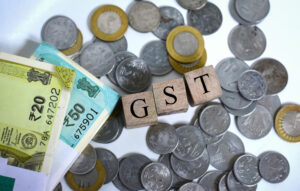
India’s food-delivery sector is staring at a fresh tax burden of nearly ₹500 crore annually under the revised Goods and Services Tax (GST 2.0) rules. Leading platforms such as Zomato and Swiggy will now be required to pay GST on delivery charges, marking a significant shift that could tighten margins in an already competitive industry.
The change stems from the government’s broader GST reforms aimed at widening the tax base, simplifying compliance, and curbing revenue leakages. By bringing delivery fees directly under GST ambit, the government expects to generate additional tax revenue while standardizing practices across digital platforms.
Industry insiders warn that the move could have far-reaching consequences. Delivery platforms, which already operate on thin margins, may be forced to pass on the additional costs to consumers or renegotiate terms with restaurant partners. Analysts note that higher costs could trigger a dip in order volumes, especially in price-sensitive urban markets where even small price hikes impact customer demand.
The development comes at a time when food-delivery companies are investing heavily in expansion, quick-commerce ventures, and AI-driven logistics to capture more users. The added tax liability could force them to re-evaluate growth strategies and operational efficiency.
Government officials, however, argue that the new rule will ensure greater transparency and compliance, positioning GST 2.0 as a reform that balances business growth with fiscal responsibility.
Key Highlights
- New GST rule imposes ₹500 crore annual tax liability on food-delivery platforms.
- Delivery charges brought directly under the GST net.
- Companies may face margin pressure and potential customer price hikes.
- Reform aligns with the government’s broader tax transparency agenda.
Who Should Take Action – Specific Advice
Food-delivery aggregators must review pricing strategies, optimize delivery operations, and strengthen compliance systems to mitigate tax impact. Restaurant partners should stay informed on billing changes to avoid disputes, while consumers should prepare for possible increases in delivery costs.
India Advocacy Insight
GST 2.0 reflects India’s intent to streamline digital economy taxation. While it poses immediate challenges for food-tech firms, it also pushes the industry towards long-term compliance, efficiency, and fiscal discipline—an adjustment that may ultimately reshape the competitive landscape.
![]()



